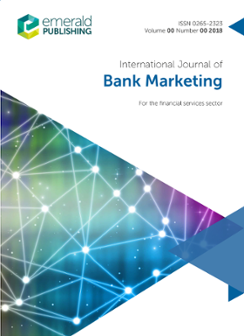金融弹性方面的性别差异:来自南非的见解
IF 6.3
3区 管理学
Q1 BUSINESS
引用次数: 0
摘要
目的虽然现有文献探讨了与金融服务的获取、使用和可用性有关的问题,但家庭承受金融逆境的能力,特别是那些生活在经济脆弱条件下的家庭,需要进一步关注。本文对南非的金融弹性行为进行了性别分析。设计/方法/方法本文使用4880个具有全国代表性的家庭样本,构建了一个涵盖储蓄、信贷、保险和退休计划行为的金融韧性行为指数(FRBI)。使用普通最小二乘法和看似无关的回归技术研究了人口特征对财务弹性的性别效应。结果显示,整个样本的财务弹性水平较低,保险是财务弹性的最大驱动力,其次分别是退休计划、储蓄和信贷。此外,分析强调,在财务弹性方面存在性别差距,因为与女性相比,男性的财务弹性行为更高。研究结果还表明,就业妇女和受教育程度较高的妇女与更大的财务弹性有关。实际意义基于这些结果,改善妇女接受高等教育的机会和就业机会将增强她们的财务弹性,并有助于实现性别平等的可持续发展目标(5)。原创性/价值据作者所知,本文首次对社会人口特征中的性别差距进行了实证分析,解释了南非的金融弹性。本文章由计算机程序翻译,如有差异,请以英文原文为准。
Gender disparities in financial resilience: insights from South Africa
PurposeWhile the extant literature has explored issues related to the access, usage and availability of financial services, the ability of households to withstand financial adversities, particularly those living under economically vulnerable conditions, requires further attention. The paper presents a gendered analysis of financial resilience behaviour in South Africa.Design/methodology/approachUsing a nationally representative sample of 4,880 households, this paper constructs a financial resilience behaviour index (FRBI) covering savings, credit, insurance, and retirement planning behaviours. The gendered effect of demographic characteristics on financial resilience is examined using the ordinary least square and seemingly unrelated regression techniques.FindingsThe results show that low levels of financial resilience were present across the sample with insurance observed to be the greatest driver of financial resilience, followed by retirement planning, savings and credit respectively. Furthermore, the analysis highlights that a gender gap in financial resilience exists as men are characterized with higher financial resilience behaviour compared to women. The results also suggest that employed women and women with higher levels of education are associated with greater financial resilience.Practical implicationsBased on these results, improving access to higher education and employment opportunities for women will enhance their financial resilience and contribute towards addressing SDG (5) on gender equality.Originality/valueAs far as the authors are aware, this paper presents the first empirical analysis of the gender gaps in socio-demographic characteristics that explain financial resilience in South Africa.
求助全文
通过发布文献求助,成功后即可免费获取论文全文。
去求助
来源期刊

International Journal of Bank Marketing
BUSINESS-
CiteScore
10.70
自引率
18.90%
发文量
54
期刊介绍:
International Journal of Bank Marketing (IJBM) aims to publish papers that relate to the marketing challenges of financial services providers around the globe.
Preference is given to empirically-based research papers that expand on existing theories (or develop new ones) on customer behaviour in financial services settings.
In addition, the journal is interested in helping academicians and practitioners in the field to better understand the discipline of financial services marketing, and as a result review papers and thought pieces are invited for submission.
 求助内容:
求助内容: 应助结果提醒方式:
应助结果提醒方式:


